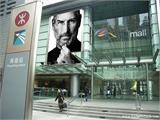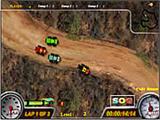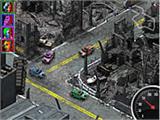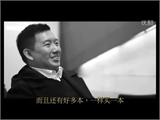Hong Kong on the mountain
Hong Kong on the Mountain
Just a few minutes' drive from Hong Kong Customs to Shenzhen Customs, but once you enter Hong Kong Customs, it's like entering another world. First, your mobile phone immediately loses its signal, making you instantly aware of the "one country, two systems" policy. Then, the roads, scenery, and even people's faces are different from those in mainland China. Everything is both luxurious and quiet. I originally thought Hong Kong was a metropolis, but there are mountains everywhere, giving a sense of mountain tourism. Buildings are scattered here and there, all located halfway up the mountains, not at all crowded. The mountains and valleys are covered with trees, and it's rare to see an area that isn't green. It makes one marvel at how living in a place with both urban charm and natural beauty feels almost divine. However, this feeling only lasts when you first arrive. Once you start consuming within this society, it’s a completely different experience. Here, a bottle of mineral water costs 15 yuan, a small bowl of beef noodles costs 48 yuan, and the high cost of living puts immediate pressure on you.
Our tour guide in Hong Kong was surnamed Cai, a very materialistic woman in her forties. Her mouthful of social philosophies and worldly experiences can be summed up in one sentence: having money is good, enjoying life is good, and spending is good; having money means being the boss, while lacking money means being a nobody. Although I don’t like this kind of person, I believe she represents a large portion of Hong Kong citizens. With great survival pressure and many temptations, it's easy for people to view money as life itself. Hong Kong is a society that mocks poverty but does not mock prostitution. Compared to other places, the commodity economy and capitalist philosophy are more typical here. This is a place where East meets West, and also where Chinese and Western economies and cultures blend most intimately after collision. Long-term British colonial rule has left deep marks on Hong Kong. Bizarre and incomprehensible foreign place names like Sha Tin, Hung Hom, Hollywood Road, and Victoria show its westernized side. But the numerous temples and their thriving incense offerings, along with the firm belief in Feng Shui, make one feel that traditional culture is practiced more authentically here than in mainland China. Not only do they consult the Huang Li (the Chinese almanac) for weddings and funerals, but they also seek Feng Shui masters for property investment and business choices, almost to the point of calculating fortune before stepping out the door. Every matter has a Feng Shui explanation in their eyes, even buying a necklace could involve timing for good luck.
Even though they are superstitious, the sex industry is highly developed here and can openly advertise in newspapers. It was only after coming here that I realized why public telephone directories in mainland China are called "yellow pages." I originally thought it was because the paper was yellow, but here, the yellow pages are a thick book, half of which is a telephone directory and the other half is advertisements for the sex industry. There are texts and illustrations, subtle and explicit, male and female services, everything is available. No wonder there are Japanese sex tourism groups coming here. The seemingly simple word "tourism" actually contains such rich connotations. This darker side made me suddenly understand; above the rivers, there are green trees and blue skies, but beneath the rivers flows another world. Good and evil coexist and are shared. The world is not all true, good, and beautiful, nor is it entirely false, evil, and ugly.
They say this is a shopper's paradise. Jewelry, watches, and electronic products are indeed cheaper here than in mainland China, but other goods are different. A bottle of mineral water costs 15 yuan, a small bowl of beef noodles costs 48 yuan, and McDonald's is truly the cheapest here, costing over twenty yuan, including both thin and thick foods, enough to eat until you're half full. During my few days in Hong Kong, I ate sparingly every day, just until I was eight-tenths full. When I reached Macau, I immediately ate until I burst my stomach. Despite being so close geographically, Macau is another world, much different from the impressions and propaganda about it.



